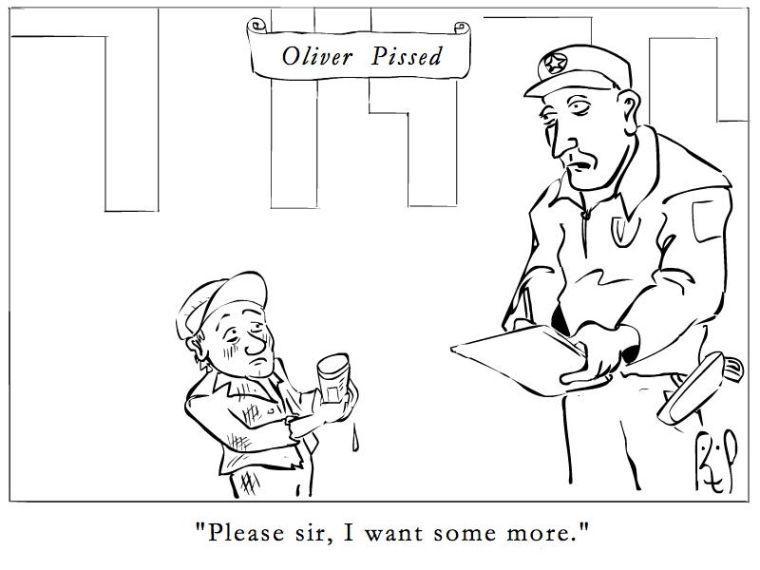Wait, you’re poor?
If so, you definitely do drugs. It’s a fact.
Unfortunately, that’s the kind of senseless thought process being propagated by legislators and proponents of mandatory drug-testing for welfare applicants.
If you’re one of those asinine supporters, no need to worry. You can at least take solace knowing you’ll always have the Constitution to wipe your behind with.
Really, that’s all you’re doing. You’re dropping your drawers and desecrating the longest-surviving Constitution in the world.
Mandatory drug-testing for welfare applicants is becoming a popular idea across the U.S., with 23 states seeking to adopt stricter laws that would require public-aid recipients to take drug tests.
Georgia Gov. Nathan Deal signed legislation April 16 that will require thousands of people applying for welfare to pass a drug test before they can receive benefits.
Less than 24 hours later, The New York Times reported that an identical law in Florida requiring drug tests for people who seek welfare benefits resulted in no direct savings, snared few drug users and had no effect on the number of applications.
For four months, from July through October 2011, Florida instituted the mandatory drug-testing of people applying for welfare. In October, Judge Mary S. Scriven of the Federal District Court issued a temporary injunction and scolded lawmakers when she deemed the legislation a “constitutional infringement.”
The four months of testing in Florida saw a mere 2.6 percent of the state’s cash assistance applicants fail the drug test – or 108 of 4,086 – according to figures released by the state.
Florida Gov. Rick Scott signed the law amid promises that it would save taxpayers money – $77 million to be exact – and deter drug users.
It did neither.
In fact, the testing cost the government an extra $45,780 and tapped into deeply held beliefs about the deserving and undeserving poor.
Florida’s legislative failure wasn’t the first to be ruled unconstitutional or deemed inappropriate. In June 2011, the Louisiana Senate voted to scrap a Metairie representative’s proposal to require drug-testing of welfare recipients who receive cash assistance.
Proponents of drug-testing welfare applicants commonly argue that a large number of drug users going on welfare use it to support their illicit habits. This type of ideology only feeds into longstanding stereotypes about the kind of people who go on welfare, and it isn’t based on any substantial research.
The National Institute on Alcohol Abuse and Alcoholism found there is no significant difference in the rate of illegal-drug use by welfare applicants and other people. Another study found that 70 percent of illegal-drug users between the age of 18 and 49 are employed full-time.
Aside from lending to misguided stereotypes, the welfare drug-testing program is simply a violation of the Fourth Amendment’s protection against unreasonable searches.
The ideology violates the constitutional rights of those who are already facing financial hardship and simply will not stand up against legal challenge.
In these times of financial uncertainty, it would seem it’s become a populist ideal to stigmatize the needy and take the position that all welfare applicants are suspected drug users and should be subject to being searched.
The problem is that there are all sorts of people who benefit from government programs. Businessmen get state contracts, farmers receive crop subsidies and retired state workers receive pensions – shall we drug test all of them?
Welfare recipients will garner little public sympathy, but stigmatizing poverty by associating it with drug abuse is patently malicious.
It’s imperative that we constrain government intrusiveness and maintain personal freedom for all.
Let it be known that drug-testing the poor is bad policy and even worse law.
Matthew Westfall is a 23-year-old mass communication senior from Winchester, Va. Follow him Twitter @TDR_mwestfall.
____
Contact Matthew Westfall at mwestfall@lsureveille.com
For Thinkers Only: It feeds stereotypes of the poor as drug users
April 26, 2012






